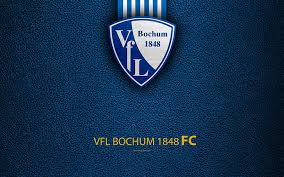
VfL Bochum FC
VfL Bochum FC is a prominent football club based in Bochum, Germany. Known for its rich history, passionate fan base, and significant contributions to German football, the club has seen various highs and lows throughout its existence. In this article, we will delve into the history, evolution, culture, and current status of VfL Bochum FC, providing an engaging and comprehensive analysis of one of Germany’s beloved football teams https://bet88t6.net/.
History of VfL Bochum FC
The history of VfL Bochum FC forms an integral part of the narrative of German football. Established in 1848, the club has gone through many transformations and developments that showcase its resilience and dedication to the sport Rút Tiền BET88.
Early Years and Formation
VfL Bochum was founded as a sports club primarily focusing on gymnastics.
- The initial focus on gymnastics was common in many clubs during this era, reflecting the physical fitness trends of the time.
- It wasn’t until the early 20th century that the club began to make a name for itself in football.
- The transition from a multi-sport club to a dedicated football team mirrored the increasing popularity of the sport across Germany.
With World War I impacting many aspects of life in Germany, including sports, VfL Bochum experienced challenges during this time but managed to survive and gradually re-establish itself post-war.
Emergence in Regional Football
Following the war, VfL Bochum began competing in regional leagues, gaining traction and recognition within local football circles.
- The 1920s and 1930s marked an important phase where the club’s participation in the regional leagues laid the foundation for future successes.
- They quickly became known for their competitive spirit and determination on the pitch, qualities that would define the club in later years.
- By the late 1930s, due to the restructuring of leagues under Nazi influence, VfL Bochum found itself playing in the top tier of German football, the Gauliga.
This period established VfL Bochum as a noteworthy contender, although they struggled to achieve significant national success amid the overshadowing complexities of the political landscape.
Post-War Rebuilding and Bundesliga Entry
The aftermath of World War II brought about a new beginning for VfL Bochum.
- The club re-emerged in the Oberliga, showcasing its resolve to return to prominence.
- In 1963, when the Bundesliga was established as Germany’s premier football league, VfL Bochum secured a place in the newly formed competition, marking a pivotal moment in its history.
- Their debut season in the Bundesliga was challenging, but it set the stage for further development and growth.
Throughout the 1970s and 1980s, VfL Bochum oscillated between the Bundesliga and the second division, showcasing a blend of talent and struggle.
Golden Era in the 1990s
The 1990s proved to be a golden era for VfL Bochum, as they began to solidify their status in German football.
- Notable players emerged during this decade, contributing to the team’s competitive edge.
- The arrival of coach Klaus Toppmöller marked a turning point, guiding the club to its best Bundesliga finishes, including a fifth-place finish in the 1996-1997 season.
- This period was characterized by memorable matches and strong performances which resonated with fans and helped cultivate a loyal following.
Despite financial constraints that occasionally challenged the club, VfL Bochum maintained a commitment to developing homegrown talent, which played a crucial role in their sustained presence in top-flight football.
Modern Challenges and Resilience
As the years progressed into the 2000s and beyond, VfL Bochum FC faced several modern challenges, including relegation battles and financial difficulties.
- The fluctuating fortunes of the club led to sporadic appearances in both Bundesliga and 2. Bundesliga, highlighting the competitive nature of German football.
- Despite relegations, the spirit of the club remained intact, with passionate supporters rallying behind the team through thick and thin.
- The ability to bounce back from adversity became a defining characteristic of VfL Bochum, emphasizing the club’s commitment to its heritage and roots.





